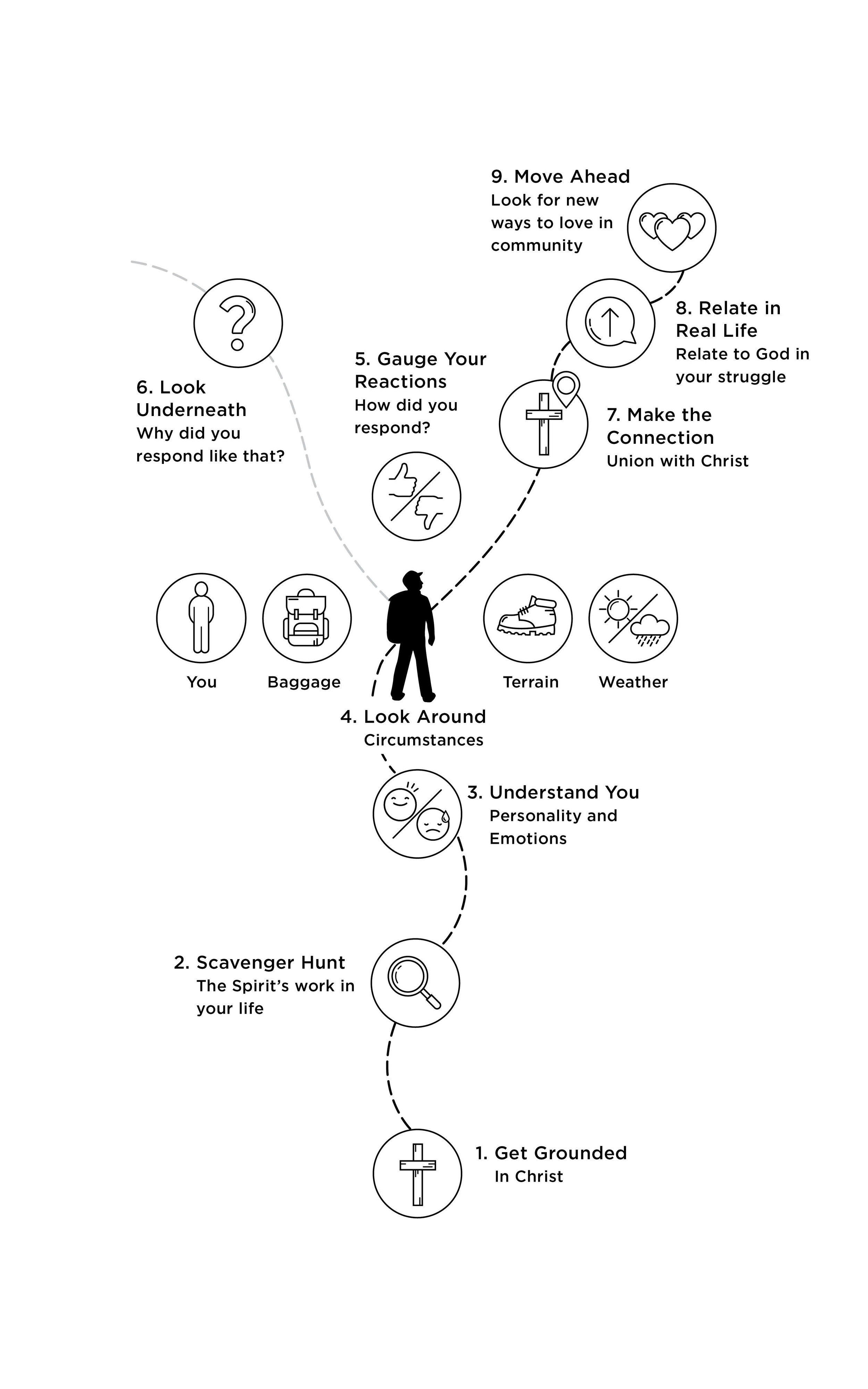That Wonderful/Horrible Word
/“Change”…...Go ahead, say that word out loud. What is the first thought and emotion that you experience when you see and say the word “change”?
Gratitude?
Fear?
Excitement?
Guilt?
Sadness?
Inadequacy?
Happiness?
Anger?
In most of my counseling experience, the “change” word conjures up feelings of guilt. The person has failed and they need to change. For others, it conjures up feelings of shame. They are flawed. There is something wrong with “me”.
Unfortunately, that very common experience of guilt and shame is hard to shake. It can be rather debilitating for some.
In my book, Unstuck: A Nine Step Journey to Change that Lasts, Step 1 (Get Grounded: In Christ) is critical to avoid steering into either the guilt or shame ditch. If you don’t feel safe admitting you need to change, you won’t come out of hiding and face areas in your life that need work. Instead, you will deny the problem, blame others, or minimize it.
Step 2: Scavenger Hunt
What is also true, though, is when someone takes a look at their lives with a view towards change, it has likely been provoked by some failure. I need/ought to be more patient with my children because I have been irritable lately. I need/ought to be more careful about my screen time because I gave in to the temptation to buy something I didn’t need or I veered off into that pornographic website. Change can focus all of your attention on your failures.
That is why you have to go on a scavenger hunt in your life for evidence of God’s gracious work. It’s there, but you have become nearsighted to only see the bad. Let me give you an example of an experience I had counseling a couple.
What They Saw
We are constantly fighting about nothing
We are not being a good example to our children
We are not working as a team
We are repeating our parents’ mistakes
We are moving further apart and we fear separation and divorce
There is no way God loves us in light of all of these things
What I Saw
They were seeking help by coming to me
They were genuine Christians who cared about letting their professed faith make a difference in their lives
They both sincerely cared for each other
When they told me how they met, it was with deep joy
They were involved in their church and connected with a small group where they met regularly
They had been married for almost 20 years
Their children were professing Christians who loved their parents
I was able to remind them of God’s consistent love for those who belong to Him through Jesus
Those two lists could not be more different. I had the opportunity to help them see where God was presently at work in their marriage because they could not. I went on a scavenger hunt for evidence of God’s work in their lives. That shift in gaze made all the difference in the world.
The apostle Paul captures this same positive sentiment in Philippians 1:6 when he says, being confident of this, that he who began a good work in you will carry it on to completion until the day of Christ Jesus. Seeing his ongoing work in your life and in others is critical to the change process.
Has this step been missing in your life? How can you be more mindful of his work in your life this week? Perhaps you can find opportunities to encourage someone by helping them see evidences of God’s Spirit in their lives.






